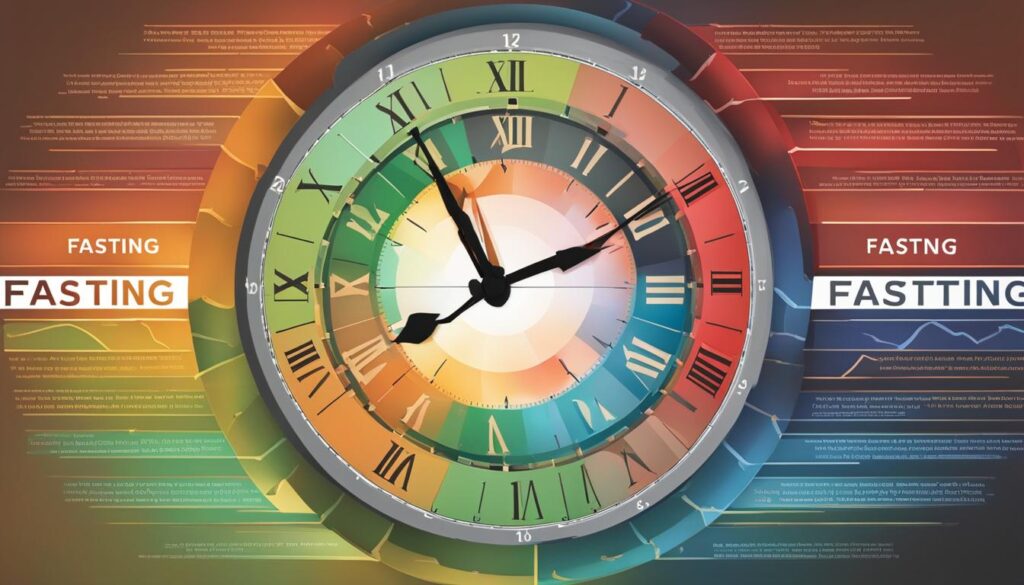Fasting from 6am to 3pm is a common practice for individuals seeking spiritual growth and a deeper connection with God. This type of fasting offers a flexible schedule that can easily be incorporated into daily routines. By engaging in prayer and fasting, you can experience a range of spiritual benefits, including improved focus, increased self-discipline, and a humbling of the soul. It is important to set intentions, read and meditate on scriptures, and stay hydrated during the fasting period. Fasting from 6am to 3pm can be a valuable spiritual discipline that enhances your spiritual journey.
Key Takeaways:
- Prayer and fasting from 6am to 3pm offers a flexible schedule for incorporating it into daily routines.
- The benefits of prayer and fasting include improved focus, increased self-discipline, and a humbling of the soul.
- Setting intentions, reading and meditating on scriptures, and staying hydrated are important during the fasting period.
- Fasting from 6am to 3pm can enhance your spiritual journey and personal growth.
Helpful Guidelines for Prayer and Fasting
When engaging in prayer and fasting, it is important to be intentional and set aside dedicated time. By following these helpful guidelines, you can enhance your spiritual experience and deepen your connection with God.
1. Be Intentional and Set Aside Dedicated Time
Prayer and fasting require a deliberate effort and commitment. Set aside specific hours or days dedicated solely to prayer and fasting. This intentional focus will help you align your heart and mind with God’s presence.
2. Engage in Scripture Reading and Meditation
During your fasting period, make time to read and meditate on scriptures that resonate with your spiritual journey. Reflecting on God’s word can bring clarity, inspiration, and guidance as you seek His presence. Use this time to go deeper in your understanding of the Bible.
3. Practice Out-Loud Prayer
Out-loud prayer is a powerful way to communicate with God during fasting. Speaking your prayers aloud allows you to verbalize your desires, concerns, and gratitude. This form of prayer can create a deeper connection and intimacy with God.
4. Write Down Praise Points and Prayer Requests
Maintain a journal to record your personal praise points, gratitude, and prayer requests. Writing down your thoughts and feelings can help maintain focus and serve as a reminder of God’s faithfulness. It also allows for reflection and tracking of spiritual growth throughout your fasting journey.
5. Utilize Worship Music
Worship music has the ability to uplift your spirit and create an atmosphere of reverence. Incorporate worship songs into your prayer and fasting routine to enhance your spiritual experience. Allow the music to guide your thoughts and help you connect with God on a deeper level.
6. Stay Hydrated and Practice Self-Discipline
While fasting, it is crucial to stay hydrated by drinking sufficient amounts of water. Water helps cleanse your body and maintain your physical well-being. Additionally, fasting requires self-discipline. Use this time to practice self-control and strengthen your spiritual resolve.
By following these guidelines and customizing them to your personal journey, you can experience a more meaningful and transformative prayer and fasting experience. Remember that each individual’s journey is unique, and it is important to find what works best for you.

Benefits of Prayer and Fasting
Prayer and fasting offer numerous benefits for individuals seeking spiritual growth. Engaging in this practice can lead to a deeper connection with God and a transformative spiritual experience. Let’s explore some of the key benefits:
- Enhanced Spiritual Growth: Prayer and fasting provide an opportunity for individuals to focus their attention on God and seek His guidance. It helps cultivate a deeper understanding of spiritual truths and facilitates personal growth.
- Increased Self-Discipline: Fasting requires self-discipline and self-control. By abstaining from food or certain activities, individuals can develop a greater sense of discipline, which can positively impact other areas of their lives.
- Revelation from God: Fasting opens up the spiritual senses and helps individuals to hear from God more clearly. It allows for a deeper level of intimacy with God and can lead to divine revelations and insights.
- Collective Prayer: Many significant movements of God have been birthed from collective times of fasting and prayer. When individuals come together in unity to seek God’s intervention, powerful things happen.
- Humbling of the Soul: Fasting humbles the soul and creates a greater dependence on God. It reminds individuals of their frailty and dependence on a higher power, fostering humility and gratitude.

As we can see, prayer and fasting have profound benefits that extend beyond the physical aspects. They offer a pathway for spiritual growth, self-discipline, and revelation from God. Additionally, the collective power of prayer and fasting can bring about significant changes in individuals and communities. It is a humbling practice that deepens one’s relationship with God.
Personal Testimony
“Prayer and fasting have been instrumental in my spiritual journey. The discipline of fasting has taught me self-control and helped me focus my attention on God’s will. Through this practice, I have experienced divine revelations and a deeper sense of connection with God. The collective times of fasting and prayer with my church community have also brought about breakthroughs and answered prayers. I would highly recommend incorporating prayer and fasting into your spiritual routine.”
In conclusion, prayer and fasting are not only beneficial but essential for those seeking spiritual growth and a closer relationship with God. It is a practice that fosters self-discipline, humility, and opens the door to divine revelations. Whether practiced individually or collectively, prayer and fasting have the potential to ignite powerful spiritual transformations.
Different Types of Fasting and Their Lengths
Prayer and fasting can take on various forms and durations, drawing inspiration from biblical examples. Understanding these different types of fasts can help individuals choose the most suitable approach for their spiritual journey.
Durations of Fasts
Fast durations can range from short one-day fasts to more extended periods of fasting. Here is an overview of common durations:
- One-day fasts: These are the most common types of fasts, lasting for 24 hours from sunrise to sunset or simply abstaining from food for a full day.
- Three-day fasts: These fasts can be absolute, meaning no food or water, or normal, where certain foods are restricted. They offer a deeper level of spiritual discipline and seeking.
- Seven-day fasts: Observed during times of mourning or seeking divine intervention, these fasts can be a transformative experience.
- Ten-day fasts: Known as partial fasts, they involve specific dietary restrictions, allowing individuals to focus on their spiritual journey while nourishing their bodies adequately.
- 21-day fasts: Popularized by Daniel and his three friends, these partial fasts involve specific dietary restrictions for 21 days and are sought after for divine revelation.
- 40-day fasts: These more extended fasts can be absolute or normal, depending on the individual’s physical and spiritual capacity. Notable biblical examples include Moses, Elijah, and Jesus.
It is important to remember that fasting is a personal journey, and individuals should consult with their spiritual leaders or mentors to determine the best approach and duration for their specific needs.
Types of Fasts
The types of fasts vary in terms of the specific practices or restrictions involved. Here are some common types:
| Type of Fast | Description |
|---|---|
| Water Fast | Abstaining from all food and only consuming water. |
| Intensive Fast | Avoiding solid food and consuming only liquids such as juices or broths. |
| Partial Fast | Restricting certain food groups or specific types of food. |
| Daniel Fast | Emulating Daniel’s fast by eating only fruits, vegetables, and whole grains while abstaining from meat, dairy, and other indulgent foods. |
| Intermittent Fast | Alternating between periods of fasting and periods of eating within a specific time window. |
Each type of fast offers a unique approach to prayer and spiritual growth. Experimenting with different types and durations can help individuals discover what resonates most with their personal journey.

Finding Your Fasting Capacity and Building on It
Discovering your personal fasting capacity is an essential part of the journey towards spiritual growth through prayer and fasting. The key is to start at a level that feels comfortable and sustainable for you. Gradual progression is crucial to avoid overwhelming yourself and ensure long-term success.
Experiment with different fasting schedules and intensities to find what works best for you. Some individuals may find it easier to begin with shorter fasts, such as fasting for a few hours or skipping a single meal. Others may choose to start with intermittent fasting, gradually extending the fasting window over time.
It’s important to approach fasting with self-awareness and respect for your own physical and spiritual needs. Be open to learning from your failures and setbacks along the way. Remember that setbacks are a natural part of any journey, and they should not discourage or deter you from continuing to pursue fasting as a spiritual practice.
As you build on your fasting capacity, you may also find it helpful to seek guidance and support from experienced individuals or communities who have embarked on similar journeys. Sharing insights, struggles, and successes can provide valuable encouragement and accountability.
| Benefits of Finding Your Fasting Capacity and Building on It |
|---|
| 1. Personal Growth – Understanding your fasting capacity allows you to tailor your fasting practices to your specific needs and goals, leading to a more fulfilling spiritual experience. |
| 2. Enhanced Discipline – Gradually building on your fasting capacity requires discipline and self-control, which can positively impact other areas of your life as well. |
| 3. Deeper Connection – Discovering the fasting routine that works best for you can lead to a deeper sense of connection with your spiritual beliefs and practices. |
| 4. Increased Resilience – Learning from failures and setbacks builds resilience and strengthens your commitment to your fasting journey. |
Remember, finding your fasting capacity and building on it is a personal and unique process. Embrace the journey, be patient with yourself, and celebrate your progress along the way.
Conclusion
Prayer and fasting are powerful spiritual practices that can lead to profound personal growth and a deep connection with God. Throughout this article, we have explored the benefits and guidelines for prayer and fasting, as well as different fasting types and finding one’s fasting capacity. It is essential to approach fasting with intentionality and engage in scripture reading, meditation, and hydration to enhance the spiritual experience.
Each person’s fasting journey is unique, and it is important to find what works best for your personal capacity and goals. Starting with a flexible schedule, such as fasting from 6am to 3pm, allows for easier integration into daily routines. The practice of prayer and fasting can bring improved focus, self-discipline, and revelation from God.
Remember, your fasting journey is a personal one, and it may involve learning from failures and gradually building on your fasting capacity. Stay committed to your spiritual growth and continue to seek a deeper connection with God through the powerful disciplines of prayer and fasting. Your personal journey awaits, and the rewards of spiritual growth are within your reach.
FAQ
Can I fast from 6am to 3pm?
Yes, fasting from 6am to 3pm is a common practice for individuals seeking spiritual growth and connection with God. This type of fasting allows for a flexible schedule, making it easier to incorporate into daily routines.
What guidelines should I follow when engaging in prayer and fasting?
It is important to be intentional and set aside dedicated time for prayer and fasting. Going to bed early the night before allows for a fresh start, and setting a wake-up alarm can help establish a consistent fasting routine. Reading and meditating on daily scriptures is encouraged, as well as engaging in out-loud prayer. Writing down personal praise and prayer points can help maintain focus. Utilizing worship music can enhance the spiritual experience. Staying hydrated with water throughout the day is essential, and decreasing unnecessary talking conserves energy for meditation.
What are the benefits of prayer and fasting?
Prayer and fasting offer numerous benefits for individuals seeking spiritual growth. These include improved focus, increased self-discipline, and revelation from God. Fasting can also help overcome obstacles and sinful appetites, promote collective prayer and dependence on God, and foster a humbling of the soul.
What are the different types of fasting and their lengths?
Fasting can take on various forms and durations. Examples include one-day fasts, one-night fasts, three-day fasts (absolute or normal), four-day fasts (normal), seven-day fasts (for mourning or divine intervention), ten-day fasts (partial with dietary restrictions), 21-day fasts (partial, like the one practiced by Daniel), and notable 40-day fasts (absolute or normal).
How can I find my fasting capacity and build on it?
Each individual has their own capacity for fasting, and it is important to start at a level that is comfortable and sustainable. Gradually building on one’s fasting capacity is key to avoid overwhelming oneself. Experimenting with different fasting schedules and intensities allows individuals to find what works best for them. It is important to remember that failures are a natural part of the fasting journey and should not be a cause for discouragement. Learning from mistakes and getting back on track is crucial. Fasting should always be approached with self-awareness and respect for one’s own physical and spiritual needs.
What should I expect on my fasting journey?
Prayer and fasting are powerful spiritual practices that can lead to profound personal growth and connection with God. Each person’s fasting journey is unique, and it is important to learn from failures and gradually build on one’s fasting capacity for continued spiritual growth.








